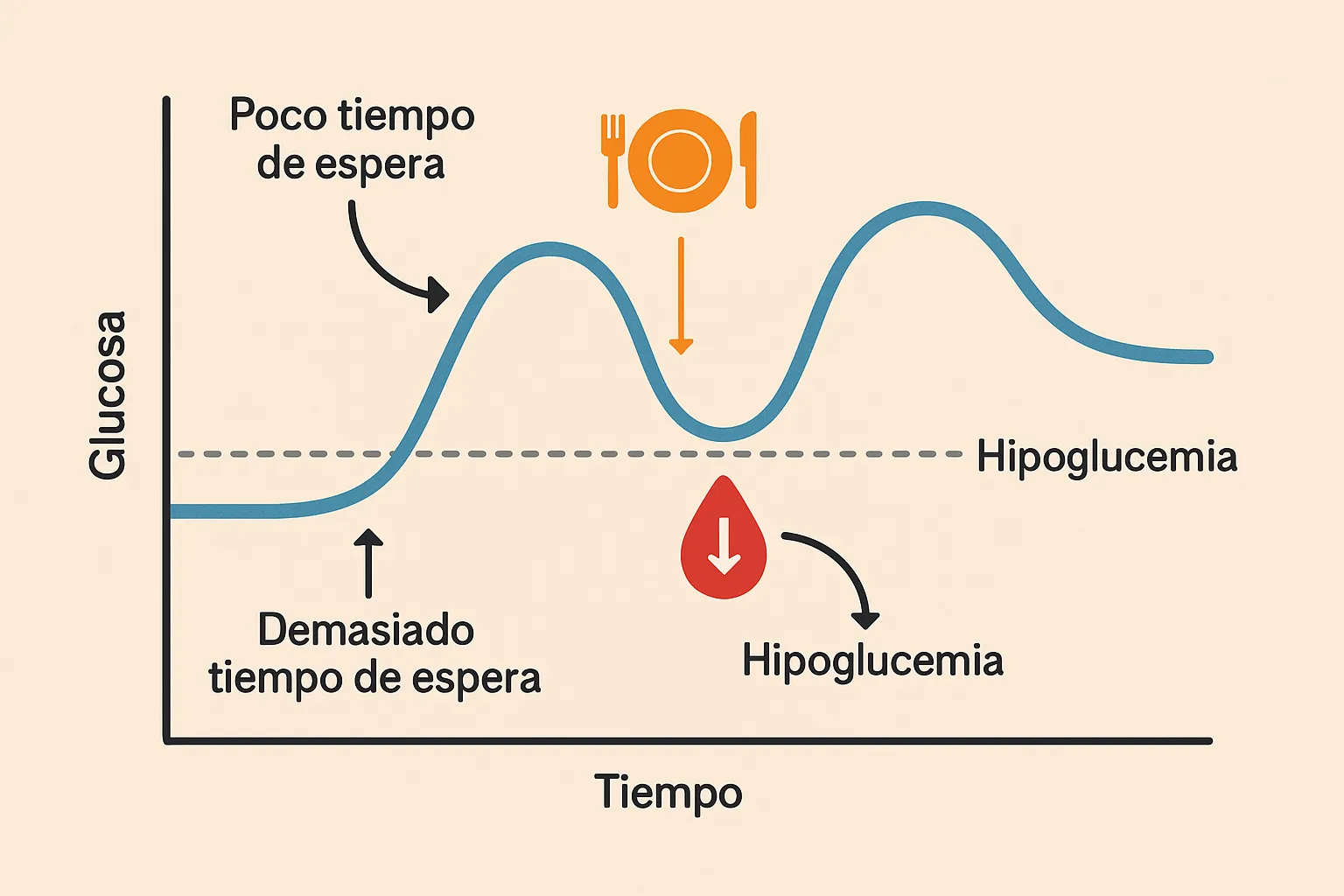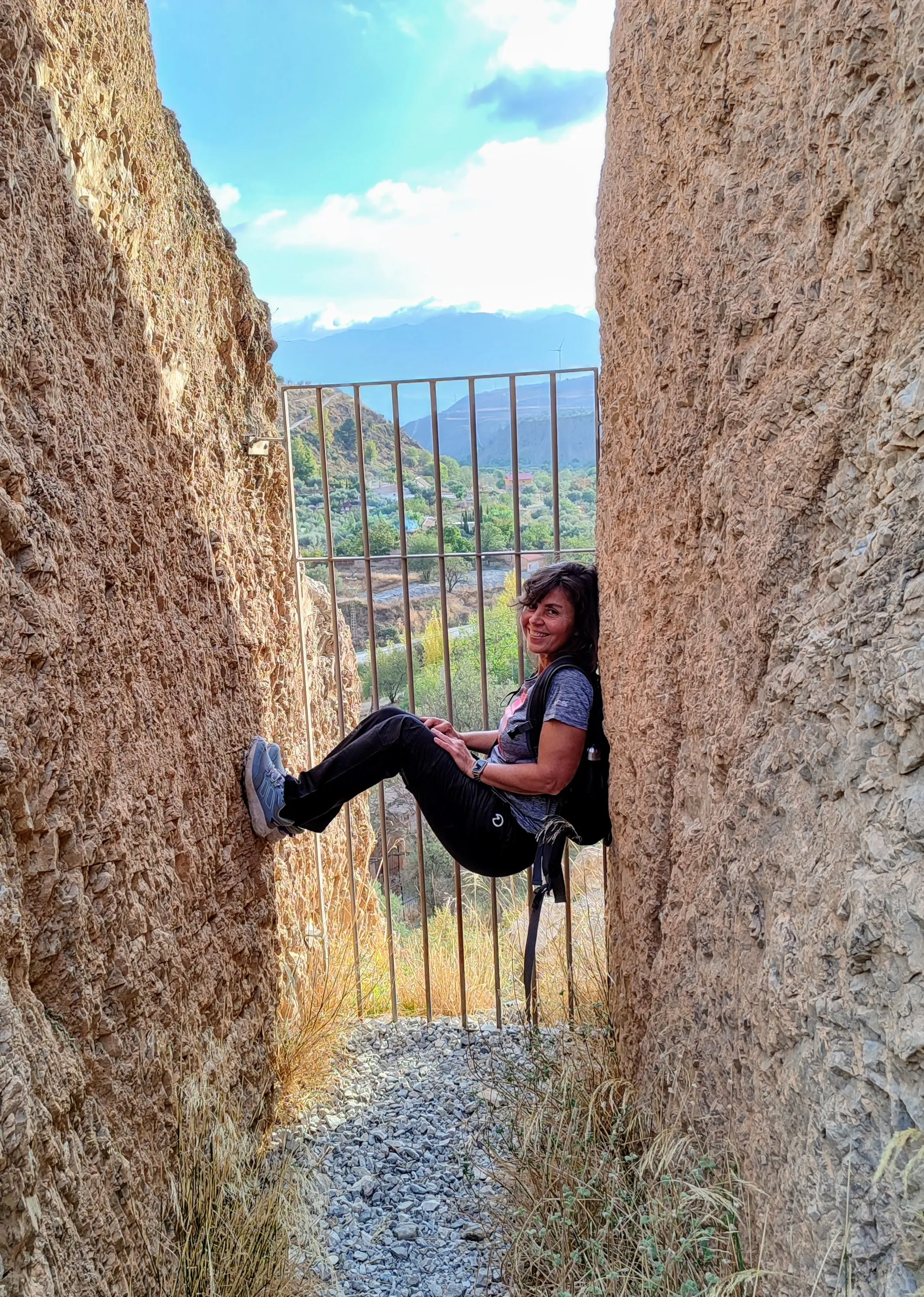Hello, I write because I have a doubt that I will surely think about:
I understand that the goal of waiting time before eating is to match the insulin with the hydrates so that the graph is flat.
What I do not understand is when they tell you that if you do not succeed (the waiting time) you cause hypoglycemia.
I analyze the different assumptions:
1) Little waiting time: Hydrates rise to you, and when insulin begins to take effect, glycemia will go to normal value if the HC counting and units are well calculated.
2) Too much waiting time: insulin will lower you (probable hypo.If you are previously low) but as soon as the HC that you have eaten the glycemia will rise to a normal value, unless the HC count and units are poorly calculated..
Then I deduce that in the case 1 it is not the little waiting time that causes you a hypo, it would be an error in the counting and excess of insulin.
I understand it well, or am I in any mistake?I have to learn.
Thank you so much!!
No signature configured, add it on your user's profile.
It is not so.If you click and expect a lot, the glucose starts to go down and you have nothing to upload it.Maybe you started eating, but digestion takes time.
You can also make mistakes and put more or less insulin you need, or eat things that delay digestion, such as a salad, meat, fish etc.
Diabetes is very complicated is not an exact science.You have to calculate amounts of sugar and insulin.Absorption speed and if you have been playing sports or moving more or less that day.More exercise, more effect will have the insulin you wear (I don't know if you have explained this), this usually lasts about 24 hours.Example, you work from Monday to Friday, it is a physical work.Now the weekend comes and you are idle the two days.You will need more basal sulina, Saturday and a little more on Sunday.
Depending on the diabetes you have you will notice more or less, because your body always produces some insulin and compensates for calculation errors.
In the end, everything is rehearsal and error.
No signature configured, add it on your user's profile.
Case 1 that is the one that you do not understand I see it like this: food takes effect before insulin and therefore go up.Then the insulin begins to take effect and therefore low.If there comes a time that the food has already finished its effect but insulin continues to act, you tend to go down more and end up in hiccups.Not due to excess insulin but for time, since insulin continues to act when you no longer need and did not act at the beginning when you needed and that is why you rose.
In the breakfasts, as always the same and I wear the same, I have it proven.When I succeed over time I upload very little and keep myself because insulin and food effect coincides.Yes as too soon, first peak and then downturn.And the amount of insulin is the same.
DM 2 con páncreas agotado desde diciembre 2020. 51 años entonces.
HG diciembre 2020: 15.9. Última HG: enero 2025 6,1
Abasaglar 10 unidades. Metformina, 1000/0/1000. Humalog junior: 2 unid en desayuno y luego en función de lo que coma.
I agree with @isabelbota, you have to learn how long the fast insulin is activated in your body for each meal, with what meals and your mood (sport, viruses, stress.)
I have flat curves at breakfasts, and meals if only as 100g vegetables, little protein and no fat.If I put fat plus hydrates, digestion is long and insulin ended at 2 hours.I have to put more insulin to correct, but if I do p sports, I use half insulin.
It is a background race and know a lot
Lada enero 2015.
Uso Toujeo y Novorapid.
@joelsa: I send you this publication where the waiting time theme is explained:
Link
DM1 desde 1982: Toujeo+Novorapid
Freestyle Libre 3+
Thank you very much for the help !!
Greetings
No signature configured, add it on your user's profile.



